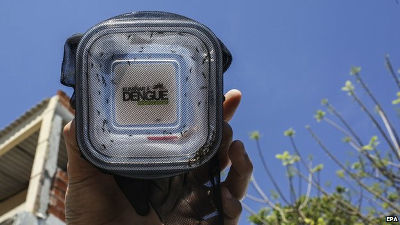Is it true that 'There are no mosquitoes in Disney World'?

by
There are Disney resorts around the world, including Tokyo Disneyland, but the largest of them is Walt Disney World Resort (Disney World) in Florida, USA. British travel agency mousetrack explains that the urban legend that Disney World has 'not a single mosquito' is being told on the Internet.
Mosquitoes at Disney World: why do you (almost) never see them?
https://mousetrack.co.uk/blog/mosquitoes-at-disney-why-do-you-almost-never-see-them/
The urban legend that ``There are no mosquitoes in Disney World'' can be briefly summarized as `` Walt Disney worked with pest control experts to eradicate mosquitoes from the park, so there is only one in Disney World. There are no mosquitoes at all,” explained in various articles and videos.

However, mousetrack said, ``This urban legend is a superstition.It is virtually impossible to completely get rid of mosquitoes in Florida.Florida, which has many wetlands, is the most suitable environment for mosquitoes to breed.'' increase. On the other hand, Disney World itself does not deny that it is trying to keep mosquitoes out of the park.
At the 1964 New York World's Fair, Walt Disney met Maj. Gen. William Potter, a veteran and former governor of the Panama Canal Zone. The Panama Canal is an area inhabited by many mosquitoes that carry yellow fever and malaria, and there was a campaign to thoroughly eradicate mosquitoes locally.
During the construction of the Panama Canal, a local doctor discovered that it was possible to prevent the spread of mosquitoes by thoroughly ``removing puddles'' and ``oil treatment of water areas that cannot be drained'' in a deadly fight against mosquitoes. By the time Potter became governor of the Panama Canal, anti-mosquito measures had improved since its construction, and Potter had a wealth of expertise in controlling mosquitoes.
At the time, Walt had purchased a large plot of land in central Florida for Disney World. However, all of the land we purchased was hot and humid swamps, inhabited by alligators and mosquitoes. Walt recognized the need to get rid of mosquitoes, so after hearing Potter's episode, Walt enlisted Potter in a Disney World construction project.

Potter believed that if instead of killing adult mosquitoes, Disneyland could be made into a place where mosquitoes cannot lay eggs, mosquito populations could be greatly reduced. Swamps are excellent breeding grounds for mosquitoes, as they lay their eggs in fresh water. To drain the swamp, Potter first built a large drainage system that drained all the water from the park to the outside.
Also, in areas where water is needed, such as large fountains and Splash Mountain, we have devised ways to ensure that the water always flows. At attractions that require a large amount of water, underground connecting pipes are used to connect water
In addition, the buildings in the garden are shaped so that water does not accumulate, and the plants planted in the garden are of a type that does not allow water to accumulate in the leaves. was designed to Of course, not only the design but also the spraying of insecticide was done. Insecticides are made from natural sources such as garlic extract, soap, peppermint, and rosemary. Furthermore, it seems that they set up carbon dioxide traps to catch mosquitoes and conduct surveys, used free-range chickens to exterminate mosquitoes, and regularly checked whether mosquitoes were spreading viruses. In addition, it is said that attempts to exterminate the larvae by spraying growth regulators are being done twice a day.
However, even with these measures, mousetrack says that mosquito bites still occur at Disneyland. During the 2016 Zika virus epidemic, Disney distributed bug spray to guests free of charge and urged guests to be careful of mosquitoes throughout the park.

mousetrack said, ``It's good news that Potter's measures have resulted in fewer mosquito bites at Disney World.Most people never get bitten at Disney World. If you want to protect yourself from mosquito bites, use bug spray to reduce your risk of mosquito bites.'
Related Posts:
in Note, Posted by log1i_yk







